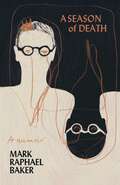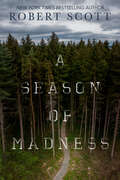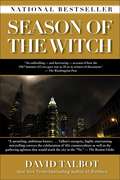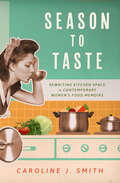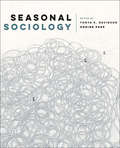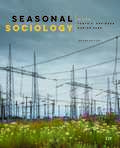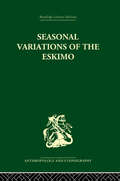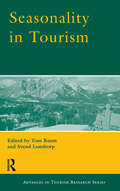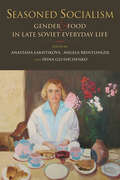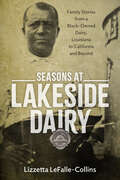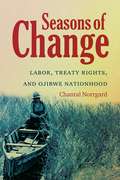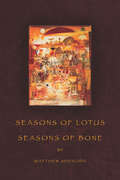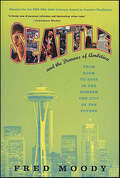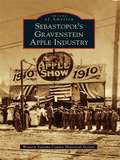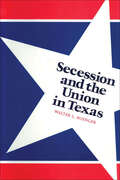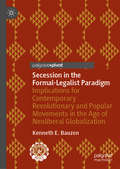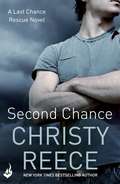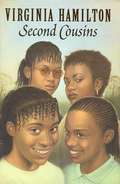- Table View
- List View
Season of Death: A Memoir
by Mark Raphael BakerMark Raphael Baker was no stranger to death. Over seven years he had become a mourner three times over: for his first wife, for his brother and for his father. When diagnosed with pancreatic cancer, he began to reflect on their deaths, his probable death and on Death as, in the words of Ecclesiastes, a 'season' that produced a large and bitter harvest for the Baker family. Powerful and conflicting emotions assailed him, but their destructive power was always defeated by his love of his family and of life, which never deserted him even when his spirit was most weary. Over the short course of his illness, he came to realise that to love both truly, he must die as the most authentic version of himself he can achieve. It enabled him to die with humbling grace and dignity. In A Season of Death, readers of The Fiftieth Gate and Thirty Days will rediscover the many forms of Mark's humour, his candour and his depth of thought and feeling, albeit in a different key, as it must be when those virtues reveal themselves in expressions of vulnerability that fend off self-pity. There is profound sorrow in this memoir but there is matching joy and much love, interwoven by a fine writer and thinker into a story that will deepen one's understanding of life.
Season of Madness
by Robert ScottCalifornia Nightmare. . .Annette Edwards was a vivacious 19-year-old on her way to watch the Fourth of July fireworks. Eighteen-year-old Pam Moore was a former beauty pageant contestant, hitching a ride on a busy street. Linda Slavik was a young mother enjoying a night out with a friend. Annette Selix was just eleven, an innocent child on her way home from the market. Each of them was attacked without warning, brutally assaulted, and left for dead by a bitter, disfigured man in the grip of a violent frenzy: the so-called "Hilltop Rapist." But serial predator Darrell Rich didn't stop at just four victims. He couldn't stop. . ."Scott tells a true story with compassion and taste." --Reviewing the EvidencePraise for Robert Scott and Shattered Innocence"Compelling and shocking. . .a ground-breaking book." --Robert K. Tanenbaum "Fascinating and fresh. . .a fast-paced, informative read." --Sue Russell
Season of the Witch: Enchantment, Terror and Deliverance in the City of Love
by David TalbotThe critically acclaimed, San Francisco Chronicle bestseller—a gripping story of the strife and tragedy that led to San Francisco&’s ultimate rebirth and triumph.Salon founder David Talbot chronicles the cultural history of San Francisco and from the late 1960s to the early 1980s when figures such as Harvey Milk, Janis Joplin, Jim Jones, and Bill Walsh helped usher from backwater city to thriving metropolis.
Season to Taste: Rewriting Kitchen Space in Contemporary Women’s Food Memoirs (Ingrid G. Houck Series in Food and Foodways)
by Caroline J. SmithBetween 2000 and 2010, many contemporary US-American women writers were returning to the private space of the kitchen, writing about their experiences in that space and then publishing their memoirs for the larger public to consume. Season to Taste: Rewriting Kitchen Space in Contemporary Women’s Food Memoirs explores women’s food memoirs with recipes in order to consider the ways in which these women are rewriting this kitchen space and renegotiating their relationships with food.Caroline J. Smith begins the book with a historical overview of how the space of the kitchen, and the expectations of women associated with it, have shifted considerably since the 1960s. Better Homes and Gardens, as well as the discourse of the second-wave feminist movement, tended to depict the space as a place of imprisonment. The contemporary popular writers examined in Season to Taste, such as Ruth Reichl, Kim Sunée, Jocelyn Delk Adams, Julie Powell, and Molly Wizenberg, respond to this characterization by instead presenting the kitchen as a place of transformation. In their memoirs and recipes, these authors reinterpret their roles within the private sphere of the home as well as the public sphere of the world of publishing (whether print or digital publication). The authors examined here explode the divide of private/feminine and public/masculine in both content and form and complicate the genres of recipe writing, diary writing, and memoir. These women writers, through the act of preparing and consuming food, encourage readers to reconsider the changing gender politics of the kitchen.
Seasonal Knowledge and the Almanac Tradition in the Arab Gulf (Palgrave Series in Indian Ocean World Studies)
by Daniel Martin VariscoThis book is the first in English to survey indigenous knowledge of seasonal, astronomical, and agricultural information in Arab Gulf almanacs. It provides an extensive analysis of the traditional information available, based on local almanacs, Arabic texts and poetry by Gulf individuals, ethnographic interviews, and online forums. A major feature of the book is tracing the history of terms and concepts in the local seasonal knowledge of the Gulf, including an important genre about weather stars, stemming back to the ninth century CE. Also covered are pearl diving, fishing, seafaring, and pastoral activities. This book will be of interest to scholars who study the entire Arab region, since much of the lore was shared and continues through the present. It will also be of value to scholars who work on the Indian Ocean and Red Sea Trade Network, as well as the history of folk astronomy in the Arab World.
Seasonal Sociology
by Tonya K. Davidson Ondine ParkLife in Canada is marked, celebrated, enjoyed, and dreaded in ways that respond specifically to the seasons. Sociological thinking allows people to ask questions about things that may otherwise be taken for granted. Thinking about the seasons sociologically opens up a unique perspective for studying and understanding social life. Each chapter in this collection approaches the seasons and the passage of time as a way to explore issues of sociological interest. The authors use seasonality as a device that can bridge, in fascinating ways, small-scale interpersonal interactions and large formal institutional structures. These contemporary, Canadian case studies are wide-ranging and include analyses of pumpkin spice lattes, policing in schools, law and colonialism, summer cottages, seasonal affective disorder, New Year’s resolutions, Vaisakhi celebrations, and more. Seasonal Sociology offers provocative new ways of thinking about the nature of our collective lives.
Seasonal Sociology, Second Edition
by Tonya K. Davidson Ondine ParkLife in Canada is shaped by the seasons – marked, celebrated, enjoyed, and sometimes dreaded in ways that respond directly to the changing cycles in nature. Sociological thinking encourages us to question the aspects of everyday life that we may otherwise take for granted. Seasonal Sociology takes a sociological approach to thinking about the seasons, providing a unique perspective for understanding social life. Each chapter in this collection explores key issues of sociological interest through the passage of time and seasonal change. The authors wield seasonality as a powerful tool that can bridge small-scale interpersonal interactions with large-scale institutional structures. This collection of contemporary Canadian case studies is wide-ranging and analyses topics such as pumpkin spice lattes, policing in schools, law and colonialism, summer cottages, seasonal affective disorder, Vaisakhi celebrations, and more. The second edition introduces new chapters on Labour Day and organized labour, disability and online dating, maple sugar shacks, seasonal agricultural work, wildfires, and social movements like Pride and Black Lives Matter. Seasonal Sociology ultimately offers fresh, provocative ways of thinking about the nature of our collective lives.
Seasonal Variations of the Eskimo: A Study in Social Morphology
by Marcel MaussSeasonal Variations of the Eskimo is one of the first books in anthropology to adopt a sociological approach to the analysis of a single society. Mauss links elements of anthropology and human geography, arguing that geographical factors should be considered in relation to a social context in all its complexity. The work is an illuminating source on the Eskimo and a proto-type of what an anthropologist should do with ethnographic data and exerted considerable influence on the development of social anthropology. English translation first published in 1979.
Seasonality in Tourism (Advances In Tourism Research Ser.)
by Tom Baum Svend LundtropSeasonal variation in demand is a reality for most tourism destinations. This work provides a balanced overview of the evidence and issues relating to tourism seasonality using European, North American and Pacific Rim cases and research evidence.
Seasoned Socialism: Gender & Food in Late Soviet Everyday Life
by Edited by Anastasia Lakhtikova, Angela Brintlinger, and Irina GlushchenkoThis essay anthology explores the intersection of gender, food and culture in post-1960s Soviet life from personal cookbooks to gulag survival.Seasoned Socialism considers the relationship between gender and food in late Soviet daily life, specifically between 1964 and 1985. Political and economic conditions heavily influenced Soviet life and foodways during this period and an exploration of Soviet women’s central role in the daily sustenance for their families as well as the obstacles they faced on this quest offers new insights into intergenerational and inter-gender power dynamics of that time. Seasoned Socialism considers gender construction and performance across a wide array of primary sources, including poetry, fiction, film, women’s journals, oral histories, and interviews. This collection provides fresh insight into how the Soviet government sought to influence both what citizens ate and how they thought about food.
Seasons at Lakeside Dairy: Family Stories from a Black-Owned Dairy, Louisiana to California and Beyond (Atlantic Migrations and the African Diaspora)
by Lizzetta LeFalle-CollinsOpened in 1907 in Shreveport, Louisiana, by Lizzetta LeFalle-Collins’s grandfather, Black dairy farmer Angus Bates, Lakeside Dairy was a rarity in the post-Reconstruction South. The dairy thrived despite the time's challenging, racially oppressive, and hostile social and political climate. While Lakeside Dairy closed in 1943, Angus’s life and work legacy echoed through the Bates family for generations. LeFalle-Collins structures her narrative around familial creative storytelling heard as a child, supported by family ephemera about the dairy and the family’s social and community engagement. These documents directed her historical research as Seasons at Lakeside Dairy tracks life on the farm through the year, showing how the family worked, lived, and cooked and how they made a sustainable living in a climate of pervasive racism. Survival in the farming community was mainly due to the influence of George Washington Carver, who disseminated innovative recommendations for farmers, and Booker T. Washington, who advocated for Black entrepreneurs to remain and rebuild the South to make it their own. Angus Bates passed in 1935, and his spouse Carrie D. Bates, who had always been the dairy's partner and financial manager, rebranded the dairy in her name with her sons until closing. Realizing Shreveport held few opportunities for her children, she encouraged them to move west, a migratory route followed by many Black Louisianans. Family members’ voices are interwoven into each chapter with direct quotations, creative storytelling, historical contexts, ephemera, and healthier recipes based on family favorites. Seasons at Lakeside Dairy offers unique insight into their persistence, sustainability, self-sufficiency, and joy. Migration tales also open a window into the complex history of race and identity, continuing as they became homeowners in the West.
Seasons of Change
by Chantal NorrgardFrom the 1870s to the 1930s, the Lake Superior Ojibwes of Minnesota and Wisconsin faced dramatic economic, political, and social changes. Examining a period that began with the tribe's removal to reservations and closed with the Indian New Deal, Chantal Norrgard explores the critical link between Ojibwes' efforts to maintain their tribal sovereignty and their labor traditions and practices. As Norrgard explains, the tribe's "seasonal round" of subsistence-based labor was integral to its survival and identity. Though encroaching white settlement challenged these labor practices, Ojibwe people negotiated treaties that protected their rights to make a living by hunting, fishing, and berrying and through work in the fur trade, the lumber industry, and tourism. Norrgard shows how the tribe strategically used treaty rights claims over time to uphold its right to work and to maintain the rhythm and texture of traditional Ojibwe life.Drawing on a wide range of sources, including New Deal-era interviews with Ojibwe people, Norrgard demonstrates that while American expansion curtailed the Ojibwes' land base and sovereignty, the tribe nevertheless used treaty-protected labor to sustain its lifeways and meet economic and political needs--a process of self-determination that continues today.
Seasons of Lotus, Seasons of Bone (American Poets Continuum)
by Matthew ShenodaWeaving narratives of ancient and contemporary Egypt while exploring ecological shifts of the Nile Valley, Matthew Shenoda is a voice at the crossroads of the African continent and its diasporas. Amiri Baraka says, "Matthew Shenoda’s poetry will open your mind to another world that exists inside and outside of your own." Winner of the 2006 American Book Award for his debut collection, Somewhere Else, Shenoda is a younger poet with his eyes set on the larger issues of history, politics, and culture.Matthew Shenoda lives in Los Angeles, California. He is on the faculty of the MFA program at Goddard College.
Seattle and the Demons of Ambition
by Fred MoodyFounded in 1851 as a four-cabin outpost named "New York Pretty-Soon," Seattle has long struggled with an identity crisis. From a nearly lawless port, to a sedate, conventional company town defined by Boeing Aircraft, to an accessible paradise for artists and recovering urbanites, Seattle repeatedly tried and failed to become bigger, wealthier, more like "major league" cities.In the late 1980s, Seattle's time suddenly arrived. Microsoft, Amazon, Starbucks, McCaw Cellular/AT&T Wireless, and dozens of local dot.com startups began to drive a booming national economy. Seattle became a city of instant millionaires and brand name shopping, skyscrapers and sports franchises-- the place everyone wanted to visit, topping lists of America's "most desirable" cities. But with such wealth came consequences: overdevelopment, paralyzing traffic, racial and class divisions, and a street population of teenagers discarded by the new culture, whose rage and disaffection fueled the rise of bands such as Nirvana. Striving to reach its ambitions, Seattle seemed to be losing the struggle for its soul. And when it hosted the 1999 World Trade Organization convention, the city's conflicted personalities clashed, as violent riots by residents and a coalition of protestors left the downtown decimated and the nation transfixed by the spectacle of globalization gone wrong. In Seattle and the Demons of Ambition, Fred Moody uses his own background as a native son, along with wide-ranging encounters with others, to trace the growing pains of the city he loves. Profiling Bill Gates and never-quite-champion football coach Chuck Knox, a pair of ambitious entrepreneurs and a homeless sculptor once profiled in the New Yorker, grunge music superstars and the preyed-upon children of the documentary "Streetwise," Moody offers a dramatic, entertaining, and insightful portrait of the city that defined economic and technological change in the America of the 1990s
Sebastopol's Gravenstein Apple Industry
by Western Sonoma County Historical SocietyThe Gravenstein apple has been etched into the identity of Sebastopol, California, which is one of the few places on earth to have extensively grown this elusive apple. The Gravenstein is an early apple whose only failing is perishability, but it is celebrated for its superior flavor. Yet Luther Burbank attempted to improve on the Gravenstein, producing the Winterstein and the Bonita for home gardeners. During the last 127 years, the Gravenstein has added millions of dollars to the local economy. It has provided a reason for celebrations, from the 1910 Apple Show to today's Apple Blossom Festival and Gravenstein Apple Fair. This is the Gravenstein's story, from its European roots to small-town homage, and the part this special apple has played in one community--and the reason the current decline in apple acreage is mourned.
Secession and the Union in Texas
by Walter L. BuengerThis history of secession in the Lone Star State offers both a vivid narrative and a powerful case study of the broader secession movement.In 1845, Texans voted overwhelmingly to join the Union. Then, in 1861, they voted just as overwhelmingly to secede. The story of why and how that happened is filled with colorful characters, raiding Comanches, German opponents of slavery, and a border with Mexico. It also has important implications for our understanding of secession across the South.Combining social and political history, Walter L. Buenger explores issues such as public hysteria, the pressure for consensus, and the vanishing of a political process in which rational debate about secession could take place. Drawing on manuscript collections and contemporary newspapers, Buenger also analyzes election returns, population shifts, and the breakdown of populations within Texas counties. Buenger demonstrates that Texans were not simply ardent secessionists or committed unionists. At the end of 1860, the majority fell between these two extremes, creating an atmosphere of ambivalence toward secession which was not erased even by the war.
Secession in the Formal-Legalist Paradigm: Implications for Contemporary Revolutionary and Popular Movements in the Age of Neoliberal Globalization
by Kenneth E. BauzonThis book explores how formal-legalism, as the dominant paradigm of explanation, has sought to explain the phenomenon of secessionism among its practitioners as a problem for the modern state. This study bears how these practitioners have, over time, described, defined, and proposed to solve secessionism and related political problems within the logic of their paradigm. In the process, the book reconstructs the formalist worldview and the practitioners’ fundamental presuppositions which, to them, render comprehensible and meaningful the occurrence of events, like secession, as well as means of dealing with it. More significantly, the book exposes a debilitating flaw of formal-legalist paradigm as it fails to account for other principles of mobilization in political and social life that defy formal-legal rules such as those based on race, ethnicity, language, culture, and material factors. Narrow adherence to textual sources and the literal approach, have led formal-legalists to miss, willfully ignore, or endorse the paradigm's strategic association with state power, evolving since the dawn of the Enlightenment. Formal-legalism has lent itself amenable to the interests of the state and to the variable construction of the meaning of the law devoid of original spirit and universality but conforming with the specific interests of the state or, for that matter, the prevailing American empire, both spatially and temporally. Accounting for this anomaly, the historical materialist perspective is considered, with appropriate historical and contemporary illustrations, as a relevant explanatory alternative to the now-obsolescent formal-legalist paradigm. With the assumption that, indeed, economic and material considerations such as those demanded by the dominant class elements within the state underlie the rationale for the state, formal-legalism has evolved from one that initially provided a presumed objective view of society to one that has subjectively become an essential part of the cultural suprastructure that allows these elements to command the state as a principal tool for labor- and value-extraction during what is popularly known as contemporary neoliberal globalization.
Secessionism and Separatism in Europe and Asia: To Have a State of One’s Own (Politics in Asia)
by Jean-Pierre Cabestan Aleksandar PavkovićThe boundaries between secessionism and separatism are often blurred, and in many cases study of secessionism encompasses that of separatism and vice versa. Recognising this inherent relationship, this book provides a comparative survey of recent attempts at secession and separatist movements from across Europe and Asia, and assesses the responses of the respective host governments. The essays address two main questions which arise from the relationship between state governments and secessionist movements: first, how secessionist or separatist movements gather support and mobilize their target populations and second, how central political authorities respond to the challenges that secessionist or separatist movements pose to their capacity to control the country. With political analysis of recent cases ranging from the Balkans, the USSR, the UK and the Basque Country, to Sri Lanka, Burma, China, Tibet and Taiwan, the authors identify both similarities and differences in the processes and outcomes of secessionist and separatist movements across the two distinct regions. This volume will be an invaluable resource for those who wish to understand the dynamics of secessionist movements and as such will appeal to students and scholars of Asian and European politics, comparative politics, international relations and conflict studies. It will also be helpful to practitioners and policy-makers who wish to understand and contribute to the resolution of such conflicts.
Second Chance: Last Chance Rescue Book 5 (Last Chance Rescue)
by Christy ReeceFor fans of Maya Banks, Nina Bruhns, Pamela Clare and Julie Ann Walker. The fifth novel in New York Times bestselling author Christy Reece's addictive Last Chance Rescue series of sexy suspense and thrilling adventure. Working for Last Chance Rescue, Cole Mathison has been to hell and back. But being responsible for the death of an innocent man is a hell like no other. Longing for redemption, Cole finds himself embroiled in the mysterious disappearance of Keeley Fairchild's young children. Rescuing the children is his mission - but falling in love with the widow of the man he inadvertently killed was never in the plans. When Keeley's life is threatened, Cole's demons must take a backseat to the most important mission of his life. He might never know the heaven of Keeley's arms, but he'll never survive the hell of failing to save her.Don't miss the other pulse-pounding novels in the Last Chance Rescue series, Rescue Me, Return To Me, Run To Me, No Chance, Last Chance, Sweet Justice, Sweet Revenge, and Sweet Reward, or the steamy southern suspense of the Wildefire series by Christy's alter-ego Ella Grace which begins with Midnight Secrets.
Second Chances: Surviving AIDS in Uganda
by Susan Reynolds WhyteDuring the first decade of this millennium, many thousands of people in Uganda who otherwise would have died from AIDS got second chances at life. A massive global health intervention, the scaling up of antiretroviral therapy (ART), saved them and created a generation of people who learned to live with treatment. As clients they joined programs that offered free antiretroviral medicine and encouraged "positive living." Because ART is not a cure but a lifelong treatment regime, its consequences are far-reaching for society, families, and individuals. Drawing on personal accounts and a broad knowledge of Ugandan culture and history, the essays in this collection explore ART from the perspective of those who received second chances. Their concerns about treatment, partners, children, work, food, and bodies reveal the essential sociality of Ugandan life. The collection is based on research undertaken by a team of social scientists including both Western and African scholars.Contributors. Phoebe Kajubi, David Kyaddondo, Lotte Meinert, Hanne O. Mogensen, Godfrey Etyang Siu, Jenipher Twebaze, Michael A. Whyte, Susan Reynolds Whyte
Second Cousins
by Virginia HamiltonIn this spellbinding sequel to a best-selling novel, cousins Cammy Coleman and Eloise Odie are forced to face some dark family secrets when their second cousins visit from New York City.
Second Grade Studies Weekly, [Grade] 2 Social Studies
by Inc. American Legacy PublishingNIMAC-sourced textbook
Second Homes: European Perspectives and UK Policies (Routledge Revivals Ser.)
by Nick Gallent Alan Mace M Tewdwr-JonesSecond homes are once again a source of political and social contention in rural areas. The British government's decision to reduce Council Tax discounts on second homes in England in April 2004 has caused wide debate in local communities, local authorities, and the media. The debate has not only focused on the vexed Council Tax issue, but on wider rural housing concerns. Questions have been raised as to whether second homes are a major cause of housing affordability problems in rural areas, and whether they lead to the displacement of local people in rural communities. In the face of anecdotal evidence being presented to answer these questions, Second Homes: European Perspectives and UK Policies, offers a more comprehensive analysis of the second homes question as it now exists. This up-to-date and authoritative analysis of second homes draws on the latest research and offers a critical insight into current housing problems in rural communities. Those interested in rural and housing studies will find the book valuable.
Second International Handbook on the Demography of Sexuality (International Handbooks of Population #14)
by Amanda K. Baumle Zelma Oyarvide TuthillA decade after the publication of the first International Handbook on the Demography of Sexuality, there have been fundamental shifts in how we measure sexual and gender identities and the breadth of available population-level sexuality data. The chapters in this second edition of this handbook provide guidance on methodological approaches involved in studying population sexuality, as well as insight into the ways that sexuality shapes key demographic outcomes. Chapters examine how we measure sexual identities and behaviors on surveys, sexuality changes across the life course, international perspectives on sexual behaviors and identities, and the ways that sexual identities shape families, labor market experiences, and health outcomes. Despite these developments, we still know relatively little about key demographic questions related to fertility and migration for sexual minorities, as well as about understudied topics of sexuality that fall outside of risk-focused analyses. In particular, much of our understanding of sexuality has been motivated by controlling the spread of sexually transmitted infections or adolescent pregnancies, rather than understanding motivations for sexual interactions, such as pleasure. Accordingly, although the research set forth in this book provides insight into existing knowledge of sexual behavior and of sexual minority populations, the chapters also point researchers and policymakers toward needed areas of research and data collection.
Second Language Teacher Professional Development: Technological Innovations for Post-Emergency Teacher Education (Digital Education and Learning)
by Michael Thomas Karim SadeghiThis edited book brings together documented evidence and theoretical propositions on the essential mediating role of digital technology in L2 teacher education and professional development. Topics range from technological affordances in teacher education, to challenges and responses to emergency transition from face to face to virtual professional development, to successful practices of online teacher training courses. Bringing together examples from various countries and contexts of how L2 teacher trainers and trainee teachers view these forced changes and react to them, the volume fills a gap in the use of digital technology in contexts where teacher educators and trainee teachers are not technology-literate and not prepared for technology-oriented education. In addition to a Foreword by Mark Warschauer and Introduction and Conclusion chapters by Editors, the volume features 13 full-length chapters by some of the well-known experts from countries such as Australia, Finland, Mexico, the UK, the USA, Spain, Singapore, Turkey and Sweden.
